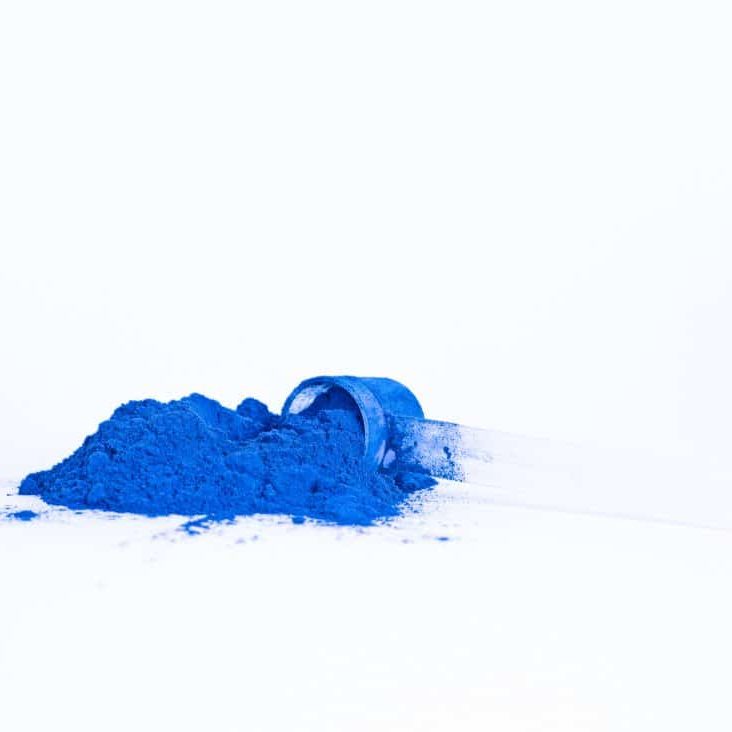Pre-workouts are a dime a dozen. If you use your favorite search engine you’ll soon find plenty of pre-workouts, but how do you choose one? This blog will help you figure that out. We’ll cover evidence-based ingredients, proper doses, and which supplements you need to take chronically rather than right before a workout to have the ergogenic effects.
Why Should You Make Your Own Pre-Workout?
There’s two aspects to tackle here and both are important before we dive into the actual process of making your own pre-workout. The first thing to consider is whether or not a pre-workout supplement is going to be beneficial for you, in the first place. The second thing is whether or not it’s necessary to make your own, versus simply buying a reputable brand‘s pre-workout product instead.
To determine whether or not a pre-workout formula is right for you, we’ll look at the 3 fundamental factors to consider when making this decision:
- Do you have the disposable income to afford the pre-workout supplement?
- Is the pre-workout supplement going to be effective for the goals you have, personally?
- Are you sensitive to stimulants or other ingredients that may be in the pre-workout formula?
The first question is the most important to ask yourself, because it’s important to know that pre-workout supplements are really just glorified caffeine products. I say that as someone who invests money in a pre-workout supplement and takes on a regular basis, though. So this is not me advocating against them, by any means. It’s me merely making it clear that proper nutrition, adequate sleep, and good hydration will take care of 90% of your energy and recovery needs. The other 10% will be filled with more detailed strategies, with a pre-workout supplement being one of them. To summarize this, if you can afford to spend $30-60 per month on a high quality pre-workout supplement, without causing any added financial stress, it’s worth doing because it can give you that extra boost in performance and results long term.
However, if you are on a tight budget and you only have so much to spend and invest into your body, health, and results — you would be better off using that money towards a training program, nutrition plan, or a personalized coach. For example, if you’re paying $45 per month on a pre workout but are going into the gym aimlessly, not knowing what you’re doing, you’re probably not going to be seeing very much success. So save that money and invest it in a training program that actually pushes you to progress week to week, month to month. For example, for only $29 per month (LESS than the supplement itself) you can use our app, The Tailored Trainer, which is filled with periodized programs that are all backed by science. Or if you’re using a pre workout and training hard, but have zero clue what to do with your diet… you also will not see much success with your body and you’d be better off taking that money and putting it towards a personal nutrition coach.
Now, the second question is another important one but doesn’t provide as clear-cut of an answer because almost any training or physical endeavor you embark on will benefit from a pre-workout supplement. This is because the job of a pre-workout supplement is to increase your energy levels, improve your performance, and enhance your muscular endurance and ability to crank out more repetitions, all while minimizing both mental and physical fatigue. This leads to an enhanced physical capability AND an improved rate of recovery afterwards, which can apply to any type of sport or training modality. Therefore I’d say regardless, it can benefit you. The reasons you might benefit may slightly differ, because one individual may want a pre-workout to enhance the pump while another may want more endurance. However, most pre-workout formulas, like the one we’ll cover today, are going to help both of those — which your body relies on more is dependent on the training you participate in.
The third and final question should be an easy one to answer… When you drink a cup of coffee or an energy drink, do you get the jitters or feel anxious? If the answer is no, ignore this and keep reading. If the answer is yes, then you want to approach this (or any other) pre-workout supplement with caution. Tingling is normal, from beta-alanine, which you’ll read later in the article, and is nothing to worry about as it’s a temporary sensation we adapt to as we use any pre-workout containing beta-alanine. However, caffeine is metabolized in the body differently with each individual and is the primary cause of jitters, anxiety, etc… Therefore if you’re an individual who metabolizes it at a rate that causes a more sensitive tolerance to it, you may want to use a pre-workout that is stimulant-free (without caffeine). This is rarely needed, but is worth cautioning before we move into the ingredients and instructions of how to create your own pre workout supplement.
And finally, you just need to determine whether or not to make your own pre-workout or just buy one off the shelf. Which should it be? Well, either route is totally fine. The best route to take is whatever allows you to save more time or money (whichever you’re more scarce with). However, if you do decide to buy a pre-workout off the shelf… you can simply use the rest of this article as a guide to help to find the best option available, instead of using it as recipe instructions to make your own.

Common Pre-Workout Ingredients
In the scientific literature, pre-workouts are known as multi-ingredient pre-workout supplements (MIPS). In a recent review, the top 100 commercially available pre-workout products were analyzed for ingredients. The average number of ingredients was ~18 with about half of these ingredients included in a proprietary blend at undisclosed quantities. The top listed ingredients included: Beta-alanine (87%; 2.0 ± 0.8 g), Caffeine (86%; 254.0 ± 79.5 mg), Citrulline (71%; 4.0 ± 2.5 g), Tyrosine (63%; 348.0 ± 305.7 mg), Taurine (51%; 1.3 ± 0.6 g), and Creatine (49%; 2.1 ± 1.0 g).
When looking at proprietary blends in MIPS, it’s important to note that the total weight of the ingredients must be listed, but the amounts of individual ingredients do not need to be listed according to the FDA. However, the ingredients need to be listed in a descending order of predominance by weight. Unfortunately, this does not provide you with enough information to determine if an effective dose of each ingredient is included in the product. Nor does it help you know the amount of supplements if you’re stacking your pre-workout with other products. There are a ton of studies on MIPS sprinkled throughout the next section, which covers the individual ingredients common to most MIPS. The goal is to help you identify what’s in the ideal pre-workout for your needs.
The Science-Based Pre-Workout Formula:
What follows is the exact recipe for a science-based pre-workout formula! Consider this your go-to recipe for making your own, perfect, pre-workout formula. With each ingredient we list, we’re also going to provide you with the reasoning, the science behind the reasoning (with studies linked to provide the supporting evidence), and the exact dosages needed of each ingredient within the pre-workout recipe. Let’s dive in….
Caffeine
This supplement should be no surprise. Caffeine is the main ingredient in most pre-workouts. Caffeine appears in the blood within minutes, and peak caffeine concentrations occur in 30 to 120 minutes. Plus, the bioavailability of caffeine is very high (~100%). Caffeine causes effects on the central nervous system (CNS) via the antagonism of adenosine receptors, leading to increases in neurotransmitter release, motor unit firing rates, and pain suppression. In terms of exercise, caffeine improves muscle contraction through calcium mobilization, which facilitates force production by motor units. These mechanisms are well known and the effects of caffeine on performance have been studied for decades.
Caffeine improves exercise performance in doses of 3–6 mg/kg body weight. The minimal effective dose seems to be around 2 mg/kg body weight and high doses (9 mg/kg) are associated with a high incidence of side-effects (e.g., anxiety, jittery, etc). For endurance training, caffeine can improve performance by 2-4% if taken in the 3–6 mg/kg range. For muscular endurance, power or strength the evidence is somewhat mixed with data suggesting a 2-7% increase in muscular endurance, power, and strength if consumed in the 3–6 mg/kg range.
Two caveats are caffeine metabolism due to genetics and habitual caffeine intake. Some inter-individual differences are due to variations in the CYP1A2 gene, since more than 95% of caffeine is metabolized by the CYP1A2 enzyme, which is encoded by the CYP1A2 gene. Current evidence suggests that those with the CC genotype (i.e., fast caffeine metabolizers) may have larger improvements in performance than slow metabolizers with caffeine intake. Habitual caffeine intake plays a role in performance enhancement, but the current evidence is mixed and more research is needed. If you consistently consume a lot of caffeine the ergogenic dosages may not be as effective.
For practical purposes, pre-workouts range from 150-350mg of caffeine per scoop. If we do some math, a pre-workout with 350mg would be in the 3–6 mg/kg range for anyone weighing 60-110kg (132-242lbs) with a lighter person (60kg, 132lbs) consuming caffeine at the top of the beneficial range (5.8mg/kg) and a heavier person (110kg, 242lbs) consuming caffeine at the lower end of the beneficial range (3.18mg/kg). This is likely the reason you see such high doses of caffeine (350mg) in pre-workouts and energy drinks — it covers a larger range of body weights. Now, if you use a pre-workout on the lower end of the caffeine spectrum, say 150mg per scoop, only people weighing 50kg or lower (110lbs) would be consuming a dose that improves performance. I’ve created a chart to help you determine the min/max caffeine consumption based on body weight below.
| Caffeine Intake for Performance Enhancement | ||||||
| Body weight | 132 lbs
(60 kg) |
154 lbs
(70 kg) |
176 lbs
(80 kg) |
198 lbs
(90 kg) |
220 lbs
(100 kg) |
242 lbs
(110 kg) |
| Minimal Dose of Caffeine
(3 mg/kg) |
180 mg | 210 mg | 240 mg | 270 mg | 300 mg | 330 mg |
| Maximal Dose of Caffeine
(6 mg/kg) |
360 mg | 420 mg | 480 mg | 540 mg | 600 mg | 660 mg |
Take home: Caffeine is beneficial in a pre-workout supplement in dosages of 3-6 mg/kg of bodyweight.
L-Theanine
L-theanine (γ-glutamylethylamide) is found in green tea (Camellia sinensis). L-theanine has been reported to modulate brain activity and provide beneficial effects on mental state. Several studies have found that L-theanine and caffeine in combination are beneficial for improving performance on cognitively demanding tasks. Finally, a recent systematic review found that supplementation L-theanine can assist in the reduction of stress and anxiety in people exposed to stressful conditions. The overall literature on L-theanine is fairly robust, but focuses on people with stress and anxiety. When L-theanine is combined with caffeine it can take the edge off so that you can consume a higher dosage without getting the negative side effects. However, if caffeine does not cause issues then you may not need it.
Take home: L-Theanine is beneficial to include in your pre-workout if taken alongside caffeine at a dosage of 100-200mg
Citrulline
Citrulline is an amino acid found primarily in watermelons, cucumbers, and other melons. Citrulline malate (2:1) is commonly used in pre-workouts as a nitric oxide (NO) booster. Citrulline is converted to arginine in the urea cycle and arginine is metabolized to release NO via nitric oxide synthase. The reason for taking citrulline, instead of arginine, is that the bioavailability for citrulline is much higher since arginine is heavily metabolized in the gut and liver. A recent meta-analysis on the topic suggests that supplementing with at least 3 grams of citrulline 60 minutes before exercise can have a beneficial effect on high-intensity strength and power performance. There have been more than a dozen studies on the citrulline malate, and the benefit appears to come from the ability to do more work (aka training volume or repetitions). Most of the studies use 6-8 grams 15-30 minutes prior to exercise. The one thing that you have to be careful of is the citrulline in the pre-workout; if there is 8 grams of citrulline malate (2:1) that means there’s less than 4 grams of citrulline total, which is below the ergogenic dose.
Take home: Citrulline is worth having in your pre-workout supplement in doses of 6-8 grams.
Beta-alanine
Beta-alanine is another common ingredient in pre-workouts. β-alanine is a precursor to carnosine and the rate limiting factor in carnosine synthesis. A recent meta-analysis found that β-alanine was most effective in exercise lasting 1–4 minutes, with no effect on exercise of <1 minute in duration, and some beneficial effect in exercise lasting from 4-10 minutes. Consumption of 4 to 6 grams per day of β-alanine can increase muscle carnosine concentrations by up to 64% after 4 weeks and up to 80% after 10 weeks. The primary mechanism associated with β-alanine supplementation is related to enhancing intracellular buffering capacity. A common side effect is paraesthesia (i.e., tingling), which can be prevented by using lower doses (1.6 g) or using a sustained-release formula.
From a practical standpoint, β-alanine appears to increase training volume, however, current research does not indicate an additive benefit on strength gains during resistance training. Therefore, this is a supplement that should be used by people who mostly train in the anaerobic zone of 1-4 minutes. Importantly, the effects of β-alanine are chronic, not acute, so there isn’t a need for it to be in a pre-workout supplement, especially if you’re consuming pre-workout only prior to exercising (e.g. 3-4x per week). β-alanine is better utilized as a supplement outside of a pre-workout so that you consistently consume enough (4-6 g/day) to have an ergogenic dose.
Take home: Beta-alanine is probably not beneficial in a pre-workout supplement unless taken every single day at a dose of 4-6 grams.
Beetroot Juice
The effects of beetroot juice are due to the rich content of nitrate serving as a precursor to nitric oxide (NO). One of the physiological functions of NO is the relaxation of blood vessel smooth musculature, and beetroot juice is used for its high concentration of polyphenols and inorganic nitrate to improve oxygen utilization during exercise. The nitrates in beetroot juice ultimately increase the lactate threshold — the point at which the body begins to rely on lactic acid production for its primary source of energy.
Supplementation with beetroot juice has been shown to diminish muscular fatigue associated with high-intensity exercise efforts. In resistance exercise, beetroot juice can increase repetitions to failure and training volume. Acute supplementation with beetroot juice also increases the power output with the same VO2 levels. Overall, it’s more well studied than any supplement except creatine and caffeine with strong evidence supporting beneficial effects in everyone except highly trained athletes. It is recommended that people take the dose of 6–8 mmol nitrate NO3−, approximately 90 min before training.
Take home: Beetroot juice is beneficial in a pre-workout supplement if consumed (6-8 mmol of nitrate).
BCAA
Branched chain amino acids (BCAAs) might seem odd to put in a pre-workout because they’re mostly studied as a way to increase muscle protein synthesis (MPS), where 13g EAA seems to be ideal for maximizing MPS and BCAA can stimulate MPS, but need other EAAs to maximize it. However, 25-40 grams of whey protein is better and/or cheaper. That said, BCAAs could be useful for slowing central fatigue during a workout, much like other supplements in this blog, allowing you to do more training volume. In fact, we’ve written about this before.
Central fatigue has been described as a reduction in muscle force due to reduced central drive and is associated with increased plasma levels of the neurotransmitter serotonin (aka 5-hydroxytryptamine, 5-HT). Synthesis of 5-HT is dependent on plasma levels of free tryptophan, which is the precursor of 5-HT. Increases in the level of 5-HT can be done via BCAA consumption. There are a few studies using time to exhaustion tests to determine if BCAAs improve performance. One study found that 20 grams of BCAAs 1 hour prior to an incremental treadmill exercise session increased time to exhaustion. Another found that ingestion of 9.4 or 15.8 grams of BCCAs, 1 hour prior to performance of a cycling exercise protocol increased time to exhaustion (BCAA +11%). These, and a few others, suggest that BCAAs in the 7-15 gram range could benefit endurance exercise.
BCAAs may also be beneficial to reduce delayed onset muscle soreness (DOMS). DOMS symptoms include muscle tenderness, stiffness, and limited range of motion. The most recent meta-analysis indicates that ~300mg/kg of body weight can reduce DOMS. Interestingly, the meta-analysis found that higher doses of BCAA weren’t necessarily better.
Take home: BCAAs may be beneficial in a pre-workout supplement, in doses of 8-15g, to reduce cardiovascular exercise fatigue and in resistance training to reduce muscle soreness post-exercise.
Betaine
Betaine is creeping its way into more and more pre-workouts. The main physiological function of betaine is to be an osmoprotectant for the cell against dehydration by increasing water retention and providing resilience to stressors. Betaine has also been reported to elevate levels of blood nitric oxide almost 3-fold, which could improve performance by increasing muscle blood flow during exercise and improving the delivery of nutrients and extraction of waste products. Furthermore, betaine may enhance muscle protein synthesis through increases in hormones like growth hormone or IGF-1. Betaine helps with lactate clearance too.
Betaine can also increase creatine biosynthesis, so it may have a similar effect as taking creatine to accelerate ATP production, which would delay fatigue. Although studies comparing betaine and creatine have found no benefit of combining them for strength with creatine outperforming betaine. A recent review found two studies indicating betaine can improve muscular strength and power, but five studies indicating it had no effect. On the other hand, a few studies have indicated that betaine may improve body composition.
Practically, betaine is typically used in dietary supplements at a dosage of 2–2.5 grams. This dosage is on-par with what most studies use. Much like β-alanine, the benefits of taking betaine seem to occur with chronic consumption, so there is no need to include it in a pre-workout unless you plan on consuming your pre-workout every day of the week.
Take home: Betaine is probably not beneficial in a pre-workout supplement unless taken every single day.
Huperzine A
Huperzine A is an acetylcholinesterase inhibitor. Huperzine A was originally isolated from the plants and is used in Traditional Chinese Medicine to promote circulation, fever reduction, anti-inflammatory effects, and for analgesic purposes. Orally ingested huperzine A appears in the blood within 15-minutes and reaches peak levels by 60-minutes while remaining in the system for at least 12-hours. It has also shown the ability to acutely improve cognitive function in disease populations, and is commonly added to pre-workout supplements to provide energy, which is appealing because exercise-induced mental fatigue affects physical performance. Huperzine A tends to be dosed in the range of 50-200mcg in pre-workouts.
There is only one study using huperzine A in a healthy population with exercise. It suggests that huperzine A (200 mcg) does not improve cognitive or physical function during exercise in exercise trained individuals.
Take home: Huperzine A does not currently have adequate evidence to include in your pre-workout supplement.
Alpha-GPC
Alpha-GPC (alpha-glycerophosphocholine or choline alphoscerate) is a choline-containing phospholipid. Much like Huperzine A, there appears to be a benefit of alpha-GPC supplementation to improve cognitive impairments in patients with cerebral disorders such as dementia and Alzheimer’s disease.
A few studies have evaluated the effects of alpha-GPC on physical and psychomotor performance. For example, one study reported no significant differences in psychomotor vigilance task results between alpha-GPC (two capsules of either 250 or 500 mg/day for seven days) and placebo groups, but did find an increase in vertical jump for those consuming alpha-GPC. One poster presentation (that was never published in a peer-reviewed journal) found that 600mg consumed 90 minutes prior to resistance exercise, increases post-exercise serum GH and peak bench press force (+14%). Another poster presentation, using 200mg of alpha-GPC, found no beneficial effect on measures of mood, cognitive function, or physiological performance. Finally, using 400mg of alpha-GPC – without exercise – induced a small benefit for motivation at night in healthy participants.
Take home: Alpha-GPC may improve short-term performance, but more evidence is needed before you put it in your pre-workout supplement.
Summary
The perfect pre-workout doesn’t have that much in it. Based on this article it’s clear that caffeine, L-theanine, citrulline, beetroot juice (i.e., nitrates), and BCAAs have short-term effects that can most likely improve a training session by reducing physical and mental fatigue which allows more training. However, there is currently minimal evidence to support huperzine A or alpha-GPC in your pre-workout. Furthermore, betaine, beta-alanine, and creatine need to be taken chronically to see performance improvements so you don’t necessarily need to consume those immediately prior to exercise (1).


























































































































































































































































































































































































































































































